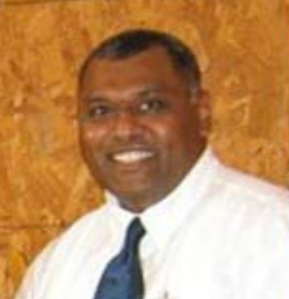
Mosese Sikivou is Manager of the Community Risk Programme of the Pacific Islands Applied Geoscience Commission (SOPAC), a regional intergovernmental organisation. In this interview, he spoke to the IDRL Programme about progress in the Pacific in strengthening disaster management laws and plans.
What is SOPAC’s current focus in the development of disaster management laws?
In 2010, SOPAC will continue to provide support to Pacific island countries to review and strengthen disaster risk management (DRM) governance arrangements. Target countries are Tuvalu and Kiribati while at the same time there will be continuing support to other countries, such as with Fiji, Palau, Vanuatu, Solomon Islands and Marshall islands, in terms of the consolidation of new plans and legislation developed recently.
What are the main challenges to creating improved DRM legislation?
The major challenge is to obtain the commitment of consistent support from the relevant government agencies to the process of reviews and, as importantly, to the implementation of new arrangements. In addition, there is always a need to ensure a wide representation of interests during the review process and so working with Governments to ensure that stakeholder interests are represented and reflected in the new DRM governance arrangements can be challenging as well.
Another key challenge is budgetary. The Pacific is one of the most natural hazard prone regions in the world and it is imperative, given the fragile nature of its developing economies, that disaster risk and climate change considerations be embedded within national development planning and budgetary mechanisms. It is no longer sufficient to keep, as it might be the case today, discussions on disaster risk and climate change isolated within the traditional DRM or environmental management governance systems.
How do you work around these challenges?
The solution to these challenges requires a succession of different interventions, for example, extensive and comprehensive high level advocacy with leaders and decision-makers. Achieving support at the political level for revised governance arrangements is always a critical concern and it is now apparent to agencies such as SOPAC that, in order to progress, it is important to foresee how strengthened DRM governance arrangements and related implementation will improve the implementation of national sustainable development initiatives.
Another solution out is to identify a local ‘champion’. This would be a person who is a respected member of the community, but also has a demonstrable record of achievements and contributions from either within or outside the government system. Working with such an individual would increase the possibilities of success since national and local stakeholders are more likely to be convinced by the voice of one of their own.
It is not sufficient to leave advocacy, etc. to scientific and technical agencies like SOPAC. Donors have a major role to play in influencing change and improvement and in providing institutional strengthening and capacity building opportunities to central agencies specialised in Finance and Planning. Through such programmes there is an opportunity to influence changes in mindset in order to help facilitate a more meaningful integration of disaster risk considerations into planning processes etc. This needs to be a priority and SOPAC also needs to continue discussions with donors concerning this.
What have the successes been?
Two good examples are Samoa, which developed a new disaster plan in 2006 and law in 2007, and the Solomon Islands, where a new disaster plan is currently awaiting endorsement by the Cabinet.
The Samoa Disaster Management Office has worked closely with SOPAC and other partners to address the consolidation of new arrangements through a dedicated programme of implementation. As a result, training on Initial Damage Assessment was undertaken by The Asia Foundation/Office of US Foreign Disaster Assistance in 2008. Also, the Samoa DMO organised a tsunami evacuation exercise for Apia in 2008. A series of community level workshops were conducted in Savaii in 2009 with the aim of improving community level consciousness regarding predominant hazards and measures to mitigate their impacts. These types of activities demonstrate a significant commitment by the Samoan government to use the new governance arrangements as a foundation for changing the culture within the country to one of safety and resilience”.
As for Solomon Islands, he mentions the same trend. Whilst the formal endorsement is still pending on the support of a major donor, AusAID, the Solomon Islands’ NDMO is undergoing a process whereby a technical expert is assisting in the implementation of new governance structures at national and provincial level.
What has been the role of civil society, including the National Red Cross Societies, in the processes in Samoa and the Solomon Islands?
They have certainly been consulted as part of the process of defining the new governance arrangements and continue to work closely with the respective NDMOs in order to ensure implementation.
How are regional partners involved in your work?
SOPAC’s reviews will involve the support of members of the Pacific Disaster Risk Management Partnership Network, which was established in early 2006 to provide support to Pacific countries, amongst other things, in strengthening governance arrangements. A number of partner organisations, such as UNOCHA and IFRC, have already expressed interest to provide support to the SOPAC-led initiative in Tuvalu and Kiribati.
How do you see the role of IFRC as a partner in these review processes?
There has not been a formal collaboration with IFRC, but we have collaborated on some fronts, and we intend to improve this in 2010.
In Kiribati, we jointly organised a Forum on Disaster Risk Management, with specific focus on legal preparedness and DRM arrangements. This was a key step towards the SOPAC-led work in Kiribati this year. Beyond Kiribati, we intend to include IFRC on a more regular basis in national level work. Given its linkages to National Red Cross Societies, we hope for specific inputs on legal preparedness to foreign disaster response, as well as in other areas.